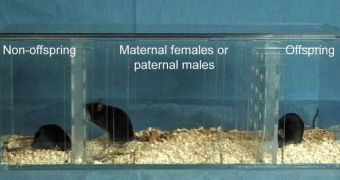According to a new study, it would appear that paternal mice tend to grow new neurons when they play around with their offspring. The researchers hypothesize that, in order for the adult animals to become highly-protective of their offspring, they need to grow new batches of gray matter. Once this happens, however, the rodents realize the importance of protecting their youngsters, the team reveals.
Researchers are currently curious to learn whether the same thing holds true in humans as well. If this turns out to be the case, then science may have just discovered a new biological mechanism that promotes bonding between parents and their children. The thing about this particular type of creating connections is that it lasts a lifetime, given that the new neurons appeared specifically to boost bonding. During the new study, the group noticed that the behaviors fathers developed after spending time with their offspring boosted the youngsters' chances of success later in life.
The investigation was conducted by the same team that demonstrated a while back that female mice develop new neurons when exposed to the pheromones of dominant males. The scientists, based at the University of Calgary in Canada and led by neuroscientist Samuel Weiss, showed at the time that brain regions including the olfactory bulb and the hippocampus developed new neurons, which together contributed to the female mice better remembering the odor of the dominant males. This allowed them to keep the best prospective mates in mind, which in turn meant a higher chance of their offspring surviving.
“The results speak of the general importance of social interactions,” Weiss says, adding that forming memories early in the offspring's development process is of the utmost importance for facilitating bonding. “What is quite new here is that they point at a clear physiological mechanism, a neural system that plays a role in recognizing offspring,” comments University of Massachusetts in Amherst neuroscientist Geert de Vries. Details of the new work appear in the latest online issue of the esteemed scientific journal Nature Neuroscience, ScienceNow reports.

 14 DAY TRIAL //
14 DAY TRIAL //